Cobbled Classics 2019 - Preview
Your guide to the races and storylines coming up over the next three weeks
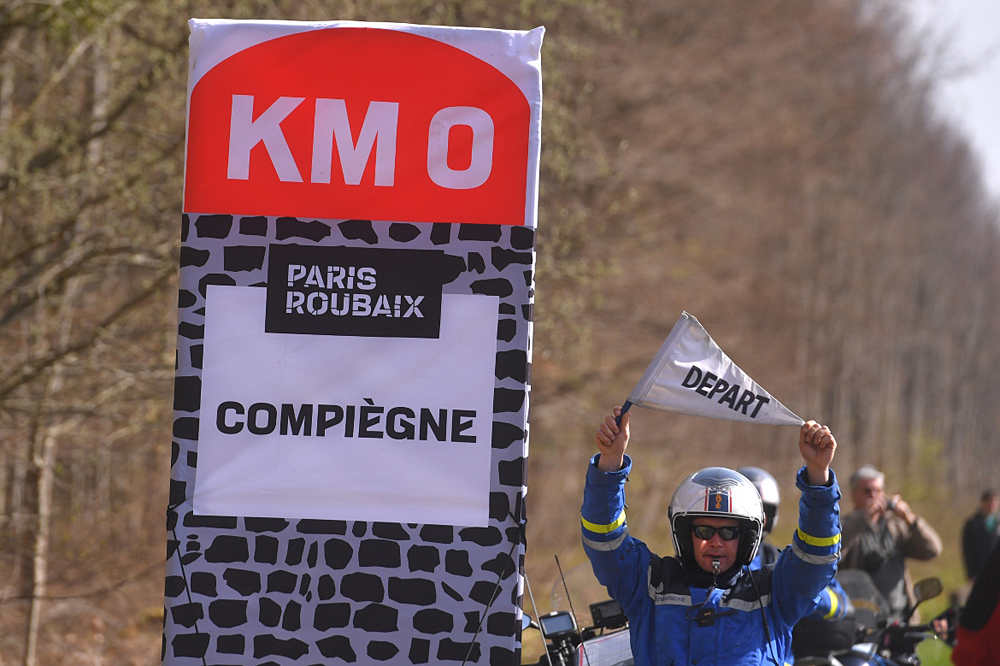
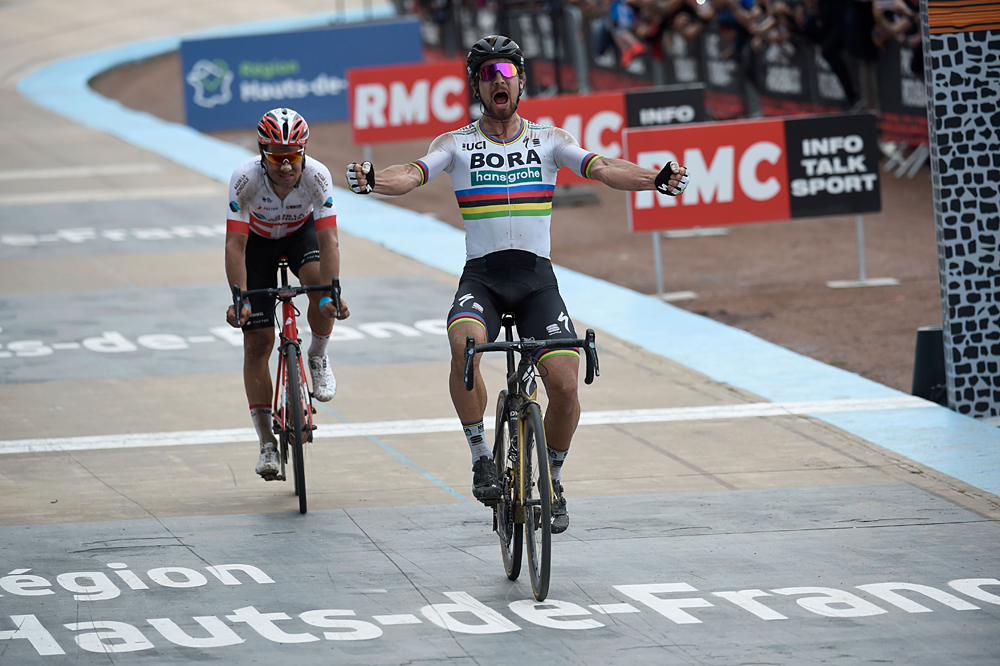
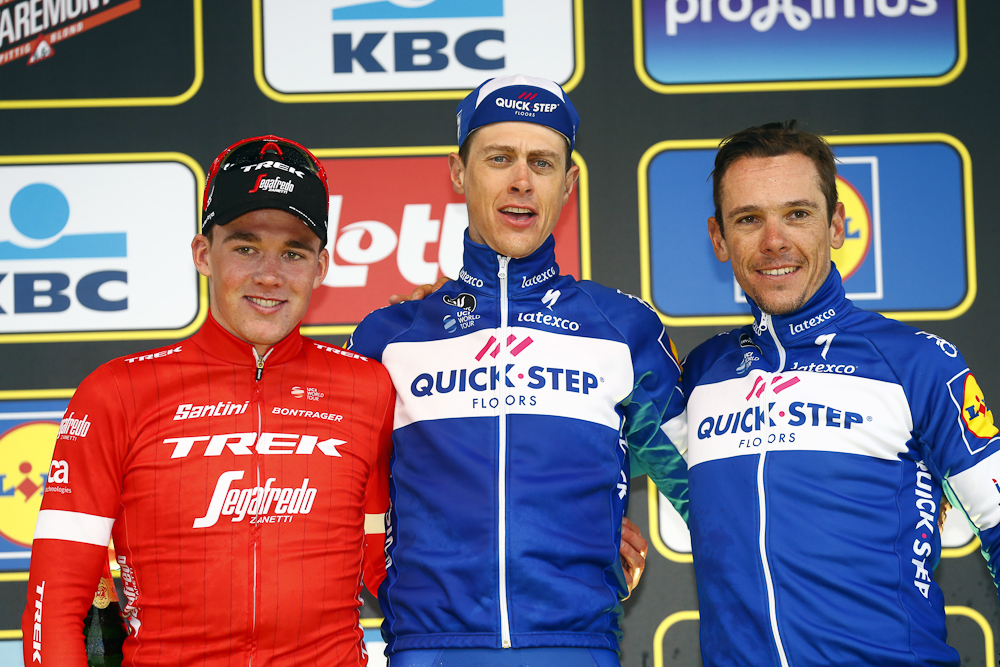
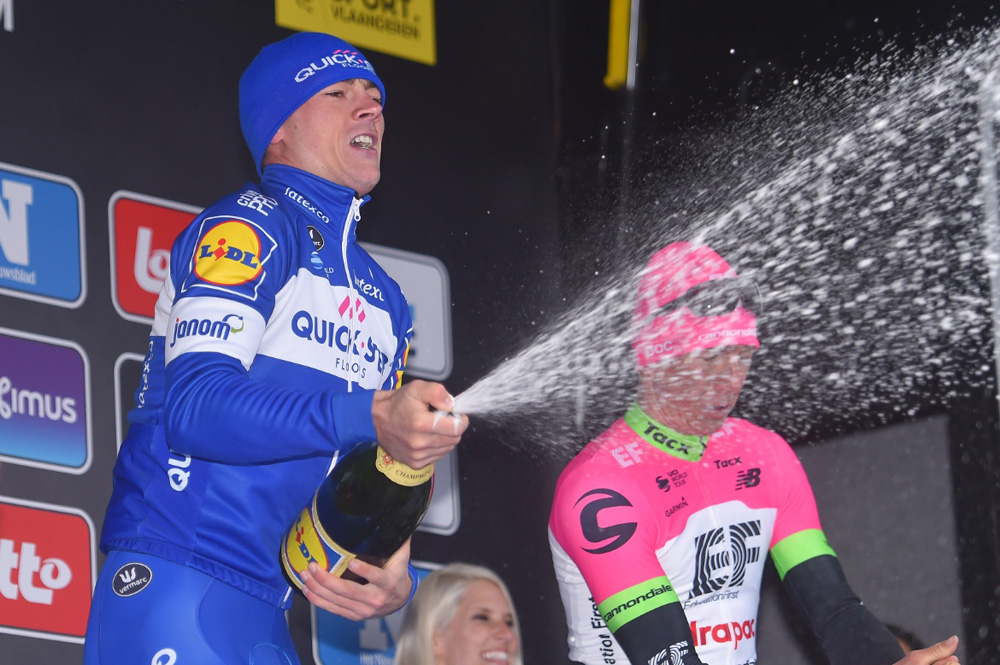
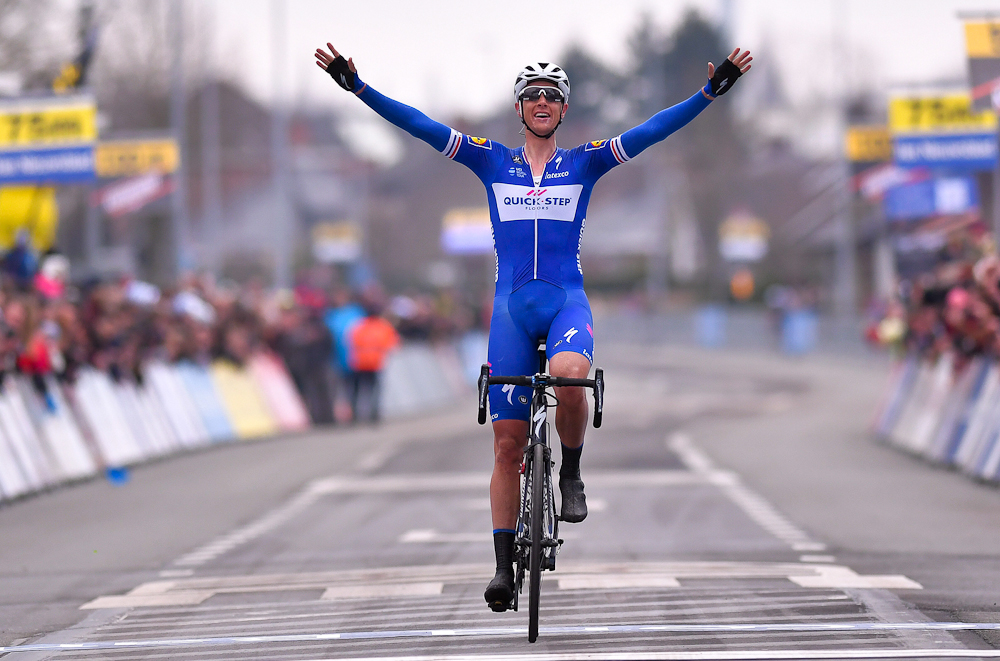
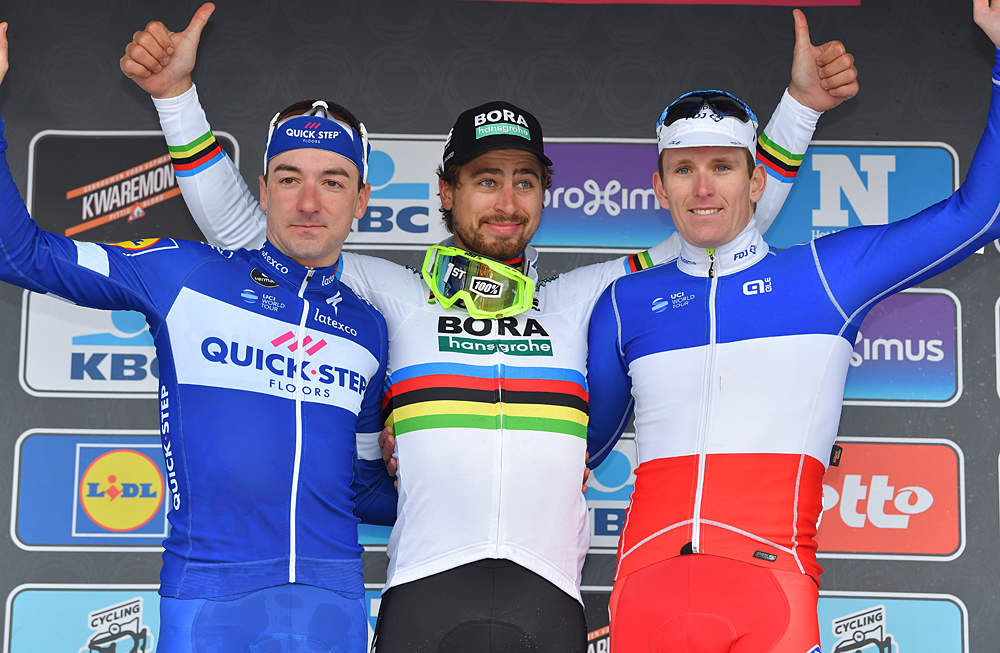
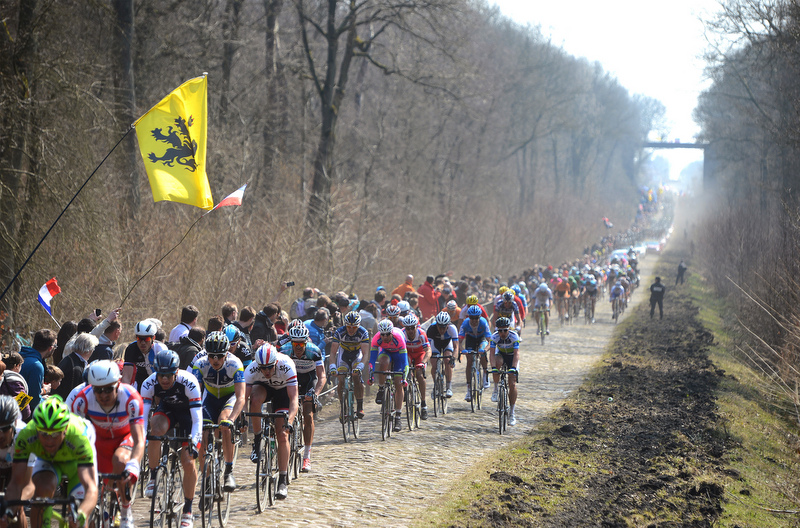
We've already had the so-called 'Opening Weekend' of Omloop Het Nieuwsblad and Kuurne-Brussel-Kuurne at the start of the month but, after the brief switch back to stage racing for Paris-Nice and Tirreno-Adriatico, and the symbolic change of the seasons at Saturday's Milan-San Remo, the main cobbled Classics period is upon us.
Spanning a three-week stretch that produces enough storylines to rival a Grand Tour, these one-day races in northern Belgium and France consistently produce some of the most exciting racing of the season.
The kasseien (cobblestones) and hellingen (short, steep climbs) are the theatre for the action in Flanders, the Dutch-speaking part of Belgium where cycling is like a religion and the beer flows steadily on race day. This is the ground for the first two weeks, culminating with the big one, the Ronde van Vlaanderen, or Tour of Flanders. From a global perspective, the following Sunday is perhaps even bigger; Paris-Roubaix, with its flat but brutal cobblestone sectors that punch through the bleak countryside of northern France, is a truly unique and iconic spectacle.
The cobbled Classics are often referred to as 'honest' races, but they can also be dishonest. Only the strongest survive, and anyone who makes it into the final phase of a race is there on merit, but, in the no-tomorrow winner-takes-all format, there are infinite tactical possibilities - not to mention crashes and mechanical problems - that make these events so beautifully unpredictable.
Cyclingnews reporters are currently on their way to Belgium and we'll have in-depth coverage of each and every race. In the meantime, here's our comprehensive preview of the three weeks ahead.
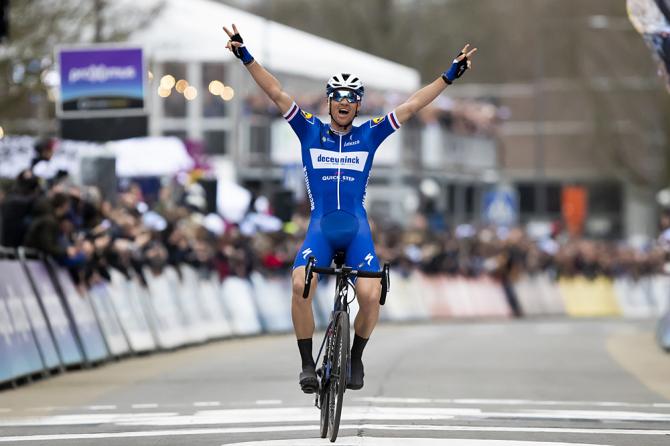
Can anyone beat QuickStep?
The Deceuninck-QuickStep team, with their unrivalled strength in depth, tend to dominate the narrative every spring, with every pedal stroke scrutinised by the Belgian media. This year, the focus on Patrick Lefevere's men is more intense than ever, given their extraordinary start to the season. Among their 19 victories, they have been utterly dominant in the one-day races so far. Zdenek Stybar won Omloop Het Nieuwsblad, Bob Jungels - making his debut on the cobbles - won Kuurne, Florian Senechal won Le Samyn, and Julian Alaphilippe won both Strade Bianche and Milan-San Remo. The only ones they haven't won are a couple of the more minor semi-Classics.
No one else has had a sniff, and Philippe Gilbert and Yves Lampaert haven't even been let off the leash. The surfeit of potential winners has proved something of a headache for Lefevere at times in the past, but in the last couple of years he has been hitting the right notes consistently, and the team spirit he has cultivated was laid bare by Elia Viviani, Stybar, and Lampaert crossing the line arm in arm at San Remo.
Get The Leadout Newsletter
The latest race content, interviews, features, reviews and expert buying guides, direct to your inbox!
The question of whether QuickStep's dominance can continue would seem to revolve around one man: Peter Sagan. The three-time former world champion is so good that his very presence can often shape the tactical complexion of a race as much as a whole band of 'QuickSteppers'. Indeed, he seems to be the only rider who can get under the skin of Lefevere's men, as evidenced by the tensions a couple of years ago. Wilfried Peters famously said 'if we don't win then he loses', and that kind of mutually assured destruction - that saw Greg Van Avermaet skip away to win Gent-Wevelgem in 2016 - is what could open the door to other riders.
Even though he didn't win anything last spring - following his glittering 2017 classics campaign - Van Avermaet belongs to that very top band of riders. In the orange of the new-look CCC Team, there were fears the raft of departures from BMC would hamper him, but his team have worked well and he managed the podium in Omloop.
Likewise, Niki Terpstra, who stole the mantle of outstanding rider of the spring last year, seemed undiminished in his first outings with Direct Energie. Having won E3-Harelbeke and the Tour of Flanders, he left the QuickStep juggernaut for the second-division French squad but podium finishes at Kuurne and Le Samyn earlier this month suggested he had gelled quickly with the likes of Damien Gaudin and Adrient Petit.
Oliver Naesen (AG2R La Mondiale) was riddled with bad luck last year but has shown he has the pedigree to win a big Classic, and a strong team to support him. That status was only enhanced with his runner-up finish at Milan-San Remo at the weekend, where his beating of Peter Sagan, Michal Kwiatkowski, and Alejandro Valverde on the Via Roma was further evidence of an improving sprint finish. On the other side of the coin, you feel Sep Vanmarcke (EF Education First) needs to be alone if he's to raise his arms in the air. The 30-year-old has replaced Van Avermaet as the nearly-man of Belgian cycling and, although his class and ability on the cobbles and climbs is undoubted, the many stars that need to align for him have not yet done so.
Trek-Segafredo have struggled to adapt to life after Fabian Cancellara, but in Jasper Stuyven, an up-and-coming Mads Pedersen - on the podium at Flanders last year - and a John Degenkolb who looks now to be coming back to his best, they have a quality team. Opening Weekend was a shambles for them, so they'll be looking to put that right. Dimension Data also had a terrible opening weekend, though theirs was down to illness, but also possess some attractive options in Michael Valgren, Edvald Boasson Hagena and Julien Vermote.
It will be interesting to see how Alexander Kristoff and Fernando Gaviria dovetail for UAE Team Emirates. The former is a two-time Monument winner, the latter more of a sprinter but one who's said to have classics potential. Kristoff has humbly worked for the Colombian in sprint finishes this season but in return he may well expect to be the main man now. Don't forget young Belgian talent Jasper Philipsen, either.
Matteo Trentin, an aggressive 10th at San Remo, leads Mitchelton-Scott with good form after injury derailed his debut campaign with the Australian team, who also have the dependable Luke Durbridge. Team Sky have Luke Rowe, who was outstanding in the Paris-Nice crosswinds, and former Roubaix podium finisher Ian Stannard, not to mention Gianni Moscon, Dylan van Baarle, and Kuurne podium finisher Owain Doull.
Lotto Soudal, the 'other' Belgian WorldTour team who have been stuck in QuickStep's shadow in recent years, boast 2018 Strade Bianche winner Tiesj Benoot, who was fifth on his Flanders debut in 2015, and fast finisher Jens Keukeleire. Elsewhere there are more fast finishers who can cope with the climbs and chaos of one-day racing, such as Sonny Colbrelli (Bahrain-Merida), Michael Matthews (Sunweb), Arnaud Démare (Groupama-FDJ), and Magnus Cort (Astana).
Other notable storylines to look out for include a raft of relatively inexperienced riders who could make a splash. Alejandro Valverde (Movistar) will finally make his Tour of Flanders debut, having looked a natural on the terrain at Dwars door Vlaanderen 12 months ago.
Then there's Mathieu van der Poel (Corendon-Circus), the Dutch prodigy who has excelled in cyclo-cross and mountain bike and shown glimpses of his potential on the road. He's already Dutch road race champion and this will be his first taste of the Classics, with Gent-Wevelgem, Dwars door Vlaanderen, and the Tour of Flanders on the agenda. His win at the GP Denain at the weekend suggested it won't take long for him to make an impact. It didn't take his great cyclo-cross rival, Wout van Aert, long, that's for sure. The Belgian made a similar transition last year and hit the ground running. Now a WorldTour rider with Jumbo-Visma, he already seems a bona fide contender, evidenced not least by his sixth-place finish at San Remo.
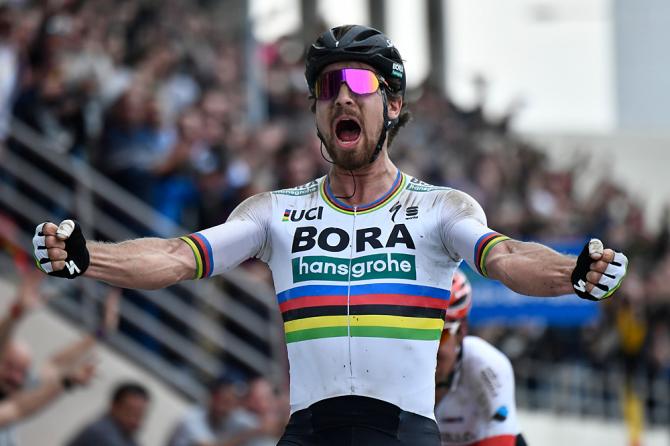
THE RACES
Driedaagse De Panne - Wednesday, March 27
A one-day race named the 'Three Days of De Panne'? The Classics wouldn't be the Classics without such curiosities. It did used to be three days, but was cut down last year after being forced into a calendar change. Basically, Dwars door Vlaanderen, which used to take place on the first Wednesday, wanted the pre-Flanders Wednesday slot, and got it. De Panne organisers weren't happy but still put on this one-day outing which, despite being exposed to the wind up near the North Sea coast, is liable to end in a bunch sprint. This year they've even managed to get onto the WorldTour calendar, making for a much improved start list.
Recent winners
2018: Elia Viviani
E3-BinckBank Classic - Friday, March 29
Another one that's curiously named. This used to be E3-Harelbeke but the organisers have removed the only part of the name that made sense and replaced it with a title sponsor. E3 is the main road that is used as part of the circuit course - starting and finishing in Harelbeke - although now it's the E17. Either way, this is probably the most important outing for the Tour of Flanders contenders, given it is so concentrated in the Flemish Ardennes, with 15 climbs ensuring a selective race. Many of them will feature in De Ronde nine days later, including the Oude Kwaremont and the Paterberg. To give a measure of the similarity and the importance, five of the past 12 winners have gone on to win Flanders, and record-holder Tom Boonen never won Flanders without winning E3 beforehand.
Recent winners
2018: Niki Terpstra
2017: Greg Van Avermaet
2016: Michal Kwiatkowski
Gent-Wevelgem - Sunday, March 31
Eschewing the Flemish Ardennes, Gent-Wevelgem is all about the wind and the Kemmelberg, even though the addition of plugstreets - gravel tracks - has added a minor something extra to the equation. The race heads north west towards the North Sea coast, where the wind and exposed roads stretch, and sometimes break, the peloton. Later on, the brutally steep cobbled climb of the Kemmelberg, near old World War One battlefields by the French border, will define the finale of the race. It will be in pieces on the other side, and previous years have seen small groups stay away to contest a tactical run-in, but the 35 kilometres to the finish mean a larger group sprint is always a possibility. Indeed, the race had earned the moniker of 'the sprinters' classic' but the lines have become increasingly blurred in recent years.
Recent winners
2018: Peter Sagan
2017: Greg Van Avermaet
2016: Peter Sagan
Dwars door Vlaanderen - Wednesday, April 3
Once held on the Wednesday immediately following Milan-San Remo, Dwars door Vlaanderen is now a WorldTour event with the pre-Flanders slot. Though it's the only outing between Gent-Wevelgem and De Ronde, a few big names like Peter Sagan still stayed away last year. The calendar change means it has also had to drop its distance by 20 or so kilometres but it's still a tough outing in the Flemish Ardennes. The Knoketeberg is tackled twice in a total of 11 climbs, including the Steenbekdries-Taaienberg combination seen in Flanders, with the final challenge being the Knokereberg in the final 10 kilometres. Bunch sprints have been common in the past, though not in recent years, although last year's first running in the new format was made more selective by the torrential rain.
Recent winners
2018: Yves Lampaert
2017: Yves Lampaert
2016: Jens Debuscherre
Tour of Flanders - Sunday, April 7
The big one in Belgian cycling, the Ronde van Vlaanderen is what all the previous races have been building up to. It's a sporting occasion of great national importance in Belgium, and it's one of cycling's five Monuments - the most prestigious one-day races in the sport. Much of the same terrain will already have been seen in the likes of E3 and Dwars, but not in this kind of intensity, and not with this amount of fans. The race is significantly longer, at more than 260km, and takes in just shy of 20 hellingen. The old course, with the Muur van Gerrardsbergen and Bosberg as the finale, was much-loved but the new one, featuring two rounds of the Oude Kwaremont-Paterberg (with Koppenberg, Steenbekdries, Taaienberg, and Kruisberg in between) is starting to bear fruit. It's much the same format this time around, for the riders as much as the fans; a sense of occasion like no other.
Recent winners
2018: Niki Terpstra
2017: Philippe Gilbert
2016: Peter Sagan
Scheldeprijs - Wednesday, April 10
Sandwiched between Flanders and Paris-Roubaix is this windswept affair that usually ends in a bunch sprint and has been referred to in the past as the unofficial sprinters' world championship. The race takes its name from the river Schelde and is the oldest still-existent race in Flanders, having first been held in 1907. Last year, however, saw a big change as the race moved its start location over the border in Holland. Once again, the majority of the race takes place on Dutch soil, but it comes into the outskirts of Antwerp for two laps of a finishing circuit that, depending on the conditions, is likely to produce a bunch sprint.
Recent winners
2018: Fabio Jakobsen
2017: Marcel Kittel
2016: Marcel Kittel
Paris-Roubaix - Sunday, April 14
Perhaps the most famous one-day race in the world. Another misnomer - it starts in Compiègne, 80km north-east of Paris - but it's steeped in iconography, from the finish in the Roubaix velodrome and the post-race shower block to the cobblestone trophy and the dusty faces of the finishers. While the Tour of Flanders peloton will have traversed much of the same terrain in the build-up races the week before, the cobblestone sectors that punch through the bleak farmlands of northern France are unique to Paris-Roubaix. Unlike Flanders, the terrain is pan-flat, but the sheer volume of cobblestones - and their ugly, bone-rattling nature - makes for a war of attrition like no other, with riders crumpling to the floor in exhaustion in the velodrome. It's known as 'The Hell of the North' for a reason. So important is positioning, the approach to even the early sectors is almost like a full-on bunch sprint, and it doesn't let up for the rest of the day. A thrill ride from start to finish.
Recent winners
2018: Peter Sagan
2017: Greg Van Avermaet
2016: Mat Hayman
Patrick is a freelance sports writer and editor. He’s an NCTJ-accredited journalist with a bachelor’s degree in modern languages (French and Spanish). Patrick worked full-time at Cyclingnews for eight years between 2015 and 2023, latterly as Deputy Editor.
